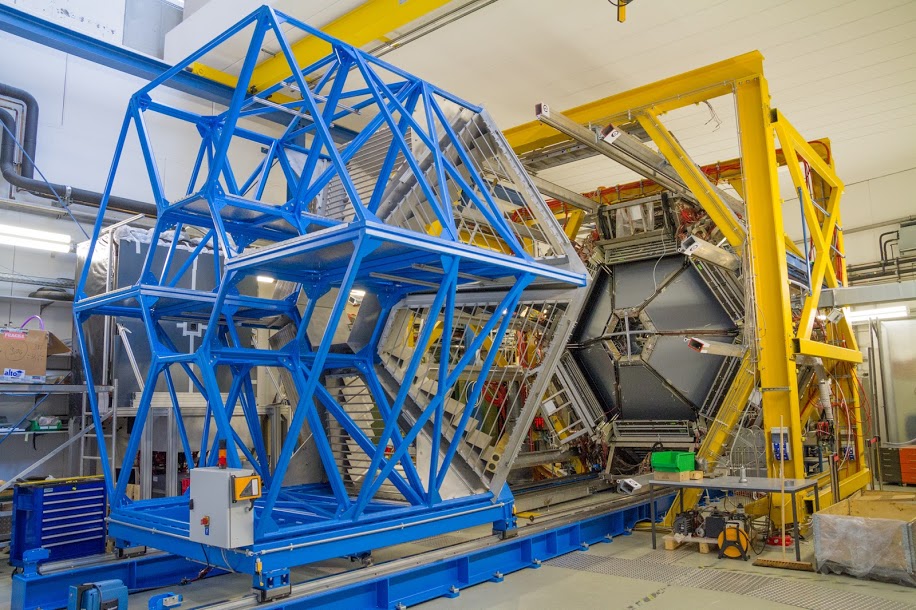
The addition of an electromagnetic calorimeter (ECAL) to HADES will allow to study via photon measurements new reaction channels involving e.g. the production of neutral mesons, neutral Lambda(1405) or Sigma(1385) resonances in elementary and heavy-ion reactions. An additional advantage of such a device is the resulting improvement of the electron-to-pion separation at large momenta.
The detector is based on 978 lead glass modules recycled from the OPAL experiment. It is divided into 6 sectors, and it will cover forward angles of 16◦ < theta < 45◦ and almost the full azimuthal angle. The readout of the detector is based on PaDiWa AMPS boards (charge to width measurement) developed especially for the calorimeter and connected to a TRB3 setup. A dedicated optical monitoring system has been developed for the ECAL. It is based on a laser LED and a microlens array with optical fibers which allows to send the same amount of light into each single ECAL module. These light pulses invoke the same signal on the output as measured for real particles.
The support frame for the ECAL was installed in September 2017. It will be filled with modules and electronics to be operable for the planned experiments at FAIR Phase-0.
Participating Institutions
Nuclear Physics Institute, Czech Academy of Sciences, Rez
ECAL module construction, calibration, slow control, analysis
Smoluchowski Institute of Physics, Jagiellonian University of Cracow
ECAL main frame, analysis
Slovak Academy of Sciences Bratislava
Technische Universität Darmstadt
Read-out electronics (PaDiWa-AMPs), analysis
Gesellschaft für Schwerionenforschung Darmstadt (GSI)
Read-out electronics
Johann Wolfgang Goethe-Universität Frankfurt
Read-out electronics
Institute of Nuclear Research Moscow
Detector tests
Technische Universität München
Analysis
Related HADES Photo Gallery collections
| September, 2017 | ECAL main frame installation |
| 2016 | Beam time at MAMI |
